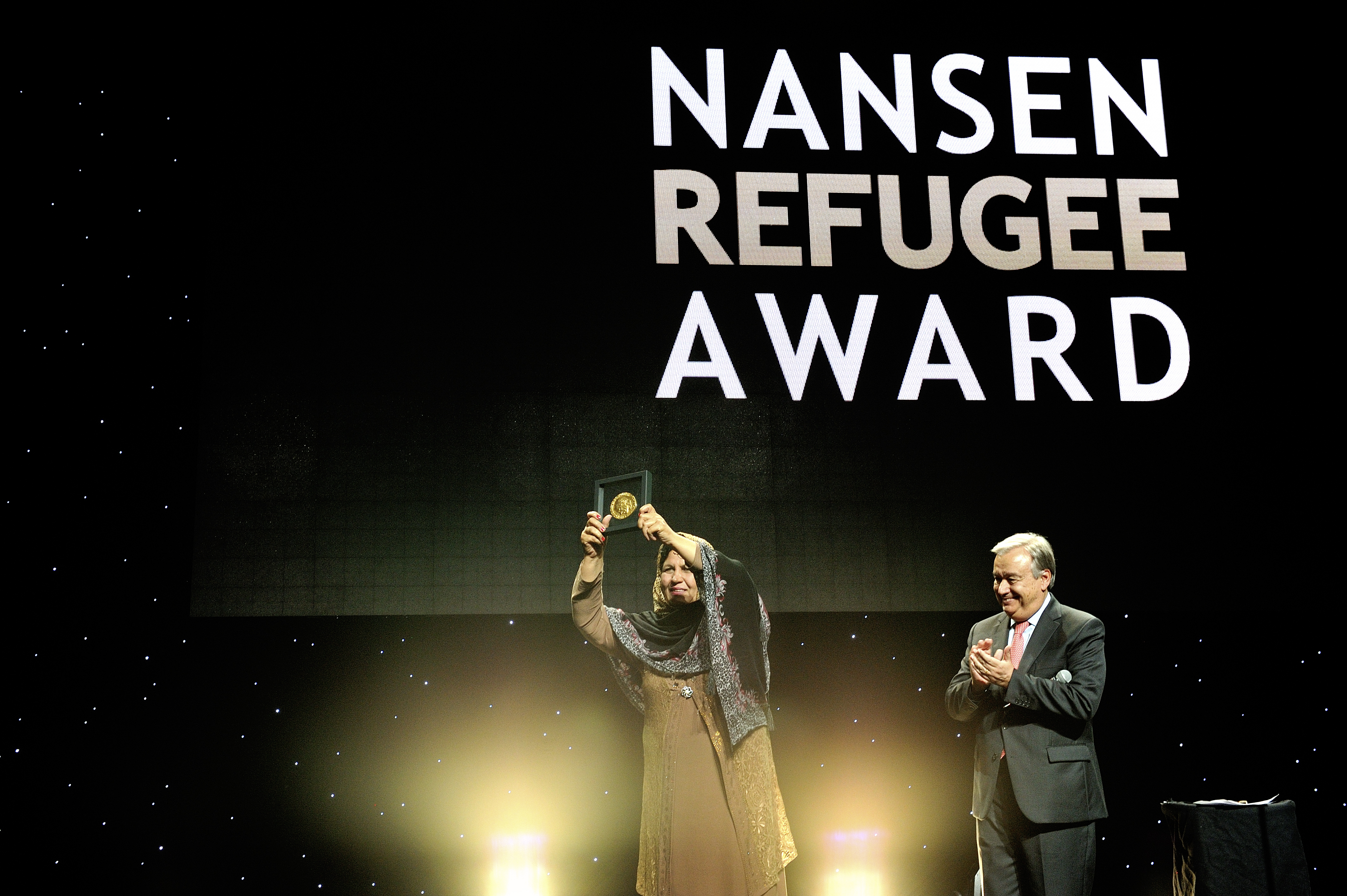Former Lord's Resistance Army slave now sings a joyful tune
Former Lord's Resistance Army slave now sings a joyful tune

DUNGU, Democratic Republic of the Congo, September 18 (UNHCR) - Monique's* voice is loud and clear, ringing out from a small lively choir of young people outside a church in the remote town of Dungu in the heart of Africa. Clapping and dancing, she and her friends are rehearsing for Sunday's service. But just four years ago, the 18-year-old had nothing to sing and dance about and thought she would die.
In 2009, she became one of the tens of thousands of women abducted and physically and sexually abused by the Lord's Resistance Army, or LRA, a twisted and misguided Ugandan rebel group that has left a trail of misery in the Great Lakes region over the past quarter century. More than 320,000 people are still displaced.
She was snatched with five other teenage girls when the LRA attacked their village, Duru, some 90 kilometres from Dungu in Orientale province, Democratic Republic of the Congo. The 14-year-old's stepfather was killed in front of her and her pregnant mother beaten so badly that she miscarried.
The girls were taken to live in the bush and become the sex objects of LRA warriors. "When we were taken, we were given to men. Mine was much older than me and was married. At night he wanted to sleep with me by force and if I refused he would beat me," Monique recalls. "I felt very bad when he took me by force. I felt bad because I was still a virgin. I thought I was dying," the young woman adds.
Monique thought she had been condemned to spend her life as a slave of the LRA and this old, violent man.
The Lord's Resistance Army first appeared in Uganda in 1987 and soon earned a name as a brutal rebel group that kidnapped children. It has been active in the Democratic Republic of the Congo since 2005, and has killed more than 2,000 people and abducted about 3,000 there in the past eight years.
Life in the bush was brutal. Beatings and murder were commonplace. But Monique was relatively lucky: after many months of captivity, she was rescued by Congolese troops as she was out foraging for food with LRA fighters.
The soldiers brought her to Dungu in the hope that she would find some relatives there. The optimism was well placed as Monique found her mother and little brother. But her joy was shortlived. After two months, she discovered that she was pregnant.
It was a total shock and too much for her to deal with. "I did not know what to do. Go to the hospital to get an abortion or keep the child," Monique says. As she wrestled with her emotions at this pivotal moment, Sister Angélique Namaika, the winner of UNHCR's Nansen Refugee Award this year for outstanding service for the forcibly displaced, came into Monique's life and gave her advice that would change her life.
The comforting and sympathetic Roman Catholic nun convinced the pregnant young woman to keep the baby and to learn to love him. Sister Angélique had arrived in Dungu in 2003 to conduct pastoral work with other nuns, but since 2008 she has been dedicating her time to helping girls and women who have suffered at the hands of the LRA. She was herself forced to flee LRA violence in 2009.
"I was very happy to have kept the boy," says Monique, who was amazed at the goodness and wisdom of this gentle nun from the village of Kembisa in Orientale Province, and says that she had never met anyone so kind and generous.
Sister Angélique not only gave Monique advice about her child, she also started to teach her a trade - sewing - that would help her to become independent and earn vital money to stay alive and bring up her child.
Monique now makes school uniforms and other clothes. She hopes that with the income from sales she will soon be able to buy a bicycle that will allow her to make house calls and deliveries and build up her client base.
"With the money I make, I pay for food and medical care. I have my own sewing machine and I use it a lot," she says, adding that her dream now is to one day send her son to school. "I am optimistic about the future," she concludes with a smile.
* Name changed for protection reasons.
By Céline Schmitt in Dungu, Democratic Republic of the Congo







